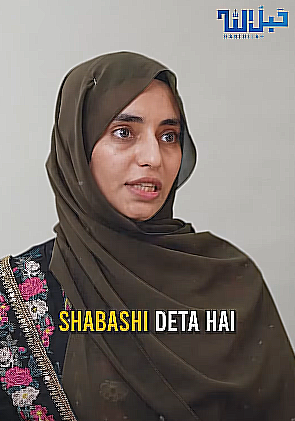The Life of Prophet Muhammad (SAW): A Beacon of Light and Guidance
Prophet Muhammad (SAW) is revered as the final messenger of Islam, a beacon of guidance whose life serves as a perfect example for all of humanity. His noble character, compassionate heart, and unwavering commitment to justice and mercy have inspired countless individuals across generations. This comprehensive account delves into the various roles he played throughout his blessed life— as a son, father, husband, leader, teacher, and more. Through stories from Hadith and verses from the Quran, we explore how the Prophet (SAW) embodied the teachings of Islam in every aspect of his life, offering timeless lessons for those who seek to follow in his footsteps. May this exploration of his life serve as a source of inspiration and guidance for all who read it.
1. Hazrat Muhammad (SAW) as a Son
Prophet Muhammad (SAW) was born in the city of Mecca to Abdullah and Amina. His father passed away before his birth, and his mother passed away when he was just six years old. Despite this early loss, the Prophet (SAW) always held his parents in the highest regard, exemplifying the ideal behavior towards one's parents. In his lifetime, the Prophet (SAW) frequently spoke about the importance of being kind and respectful to one's parents. Even after their death, he showed reverence by praying for them. The Prophet (SAW) emphasized the importance of honoring parents, saying, "
In one instance, when his grandson Hasan (RA) was playing, the Prophet (SAW) picked him up and kissed him. A Bedouin who saw this remarked that he had never kissed his children. The Prophet (SAW) responded, "Paradise lies at the feet of your mother" (Sunan al-Nasa'i). The Quran also stresses this, stating, "
The Prophet (SAW) taught that being a father is not just about providing material needs but also about nurturing, loving, and guiding one's children with compassion. The Quran mentions, "And We have enjoined upon man [care] for his parents. His mother carried him, [increasing her] in weakness upon weakness, and his wea ning is in two years. Be grateful to Me and to your parents; to Me is the [final] destination (Quran 31:14).
2. Hazrat Muhammad (SAW) as a father
Prophet Muhammad (SAW) was born in the city of Mecca to Abdullah and Amina. His father passed away before his birth, and his mother passed away when he was just six years old. Despite this early loss, the Prophet (SAW) always held his parents in the highest regard, exemplifying the ideal behavior towards one's parents. In his lifetime, the Prophet (SAW) frequently spoke about the importance of being kind and respectful to one's parents. Even after their death, he showed reverence by praying for them. The Prophet (SAW) emphasized the importance of honoring parents, saying, "
In one instance, when his grandson Hasan (RA) was playing, the Prophet (SAW) picked him up and kissed him. A Bedouin who saw this remarked that he had never kissed his children. The Prophet (SAW) responded, "Paradise lies at the feet of your mother" (Sunan al-Nasa'i). The Quran also stresses this, stating, "
The Prophet (SAW) taught that being a father is not just about providing material needs but also about nurturing, loving, and guiding one's children with compassion. The Quran mentions, "And We have enjoined upon man [care] for his parents. His mother carried him, [increasing her] in weakness upon weakness, and his wea ning is in two years. Be grateful to Me and to your parents; to Me is the [final] destination (Quran 31:14).
3. Hazrat Muhammad (SAW) as a Husband
Prophet Muhammad (SAW) was the epitome of kindness, respect, and love as a husband. He was married to Khadijah (RA) for 25 years until her death, and she remained his only wife during that time. Their marriage was marked by deep mutual respect and love. Khadijah (RA) was the first to believe in his prophethood and supported him in every way.
The Prophet (SAW) treated all his wives with fairness and compassion. He was gentle and considerate, always ensuring their well-being. Aisha (RA) reported that the Prophet (SAW) would help with household chores, saying, "The best of you are those who are best to their wives, and I am the best among you to my wives" (Tirmidhi). The Prophet (SAW) also emphasized that women are to be treated with kindness, saying, "The most perfect of believers in faith are those who are best in manners, and the best of you are those who are best to their wives" (Tirmidhi).
4. Hazrat Muhammad (SAW) as a War General
As a war general, Prophet Muhammad (SAW) demonstrated extraordinary leadership, strategy, and mercy. He always prioritized peace and only engaged in warfare when it was absolutely necessary. He laid down strict rules of engagement, forbidding the killing of women, children, and non-combatants, and ordered that property, crops, and livestock should not be destroyed.
During the Battle of Badr, the first major battle between the Muslims and the Quraysh, the Prophet (SAW) displayed unparalleled leadership. Despite being outnumbered, the Muslims won under his guidance. Before the battle, the Prophet (SAW) supplicated to Allah for victory, illustrating his deep reliance on divine support. The Quran references this event, "And already had Allah given you victory at Badr while you were few in number. Then fear Allah; perhaps you will be grateful" (Quran 3:123).
His leadership was not only strategic but also compassionate. After the conquest of Mecca, when he had the power to seek revenge on those who had wronged him, he chose to forgive them, saying, "Go, for you are free" (Sunan Ibn Majah). This act of mercy set a profound example of forgiveness and restraint.
5. Hazrat Muhammad (SAW) as a Teacher
Prophet Muhammad (SAW) was not just a spiritual leader but also an unparalleled teacher. He taught his companions the teachings of Islam, guiding them in both religious and worldly matters. His teaching methods were simple, direct, and practical. He used parables, stories, and examples from daily life to make his lessons relatable and easy to understand.
One of his notable teaching moments was when a Bedouin urinated in the mosque. The companions were furious, but the Prophet (SAW) calmly told them to pour water over it, saying, "You have been sent to make things easy, not to make them difficult" (Sahih Bukhari). This incident exemplifies his wisdom in teaching compassion and understanding over harshness.
The Prophet (SAW) also placed great emphasis on the importance of seeking knowledge. He said, "Seeking knowledge is an obligation upon every Muslim" (Ibn Majah). His own life was a testament to the continuous pursuit of knowledge and the dissemination of it to others.
6. Hazrat Muhammad (SAW) as a Student
Even as the Prophet of Allah, Muhammad (SAW) was a student of divine knowledge. Despite being unlettered, he received and conveyed the revelations of the Quran with utmost dedication. His humility in receiving knowledge from Allah through the Angel Jibreel is a profound lesson in the importance of seeking knowledge.
In one instance, when the Angel Jibreel asked him to recite, the Prophet (SAW) replied that he could not read. The angel then revealed to him the first verses of the Quran: "Recite in the name of your Lord who created. Created man from a clinging substance. Recite, and your Lord is the most Generous – Who taught by the pen – Taught man that which he knew not" (Quran 96:1-5).
The Prophet (SAW) was eager to learn and understand the guidance from Allah, which he then imparted to his followers. His dedication to learning and teaching is a timeless example for all believers.
7. Hazrat Muhammad (SAW) as a Neighbor
Prophet Muhammad (SAW) was the ideal neighbor, treating everyone around him with kindness and respect, regardless of their faith or background. He emphasized the rights of neighbors and encouraged his followers to maintain good relationships with them.
One of the most famous stories about the Prophet (SAW) as a neighbor involves a woman who used to throw garbage on him every day as he passed by her house. One day, when she didn't throw the garbage, the Prophet (SAW) inquired about her well-being. Upon learning that she was ill, he visited her and offered his help. This act of kindness led the woman to embrace Islam.
The Prophet (SAW) said, "He is not a believer whose stomach is filled while his neighbor goes hungry" (Bukhari). This Hadith underscores the importance of caring for one's neighbors, a principle that the Prophet (SAW) embodied throughout his life.
8. Hazrat Muhammad (SAW) as a Leader
As a leader, Prophet Muhammad (SAW) combined justice, compassion, and humility. He was not a ruler who sought power for its own sake; rather, he led by example and served the community with sincerity.
One of the defining moments of his leadership was the Treaty of Hudaybiyyah. Despite the initial terms being unfavorable to the Muslims, the Prophet (SAW) accepted the treaty, understanding the long-term benefits it would bring. His companions were disheartened, but the Prophet (SAW) reassured them, saying, "By Allah, I am the Messenger of Allah, and I will not disobey Him" (Sahih Muslim).
His leadership was characterized by consultation and inclusion. He often sought the advice of his companions and valued their opinions. The Quran highlights this aspect of his leadership, "And by the mercy of Allah, you dealt with them gently. And had you been severe and harsh-hearted, they would have broken away from about you. So pardon them and ask forgiveness for them and consult them in the matter" (Quran 3:159).
9. Hazrat Muhammad (SAW) as a Friend
Prophet Muhammad (SAW) was a loyal and caring friend. His friendships were based on trust, sincerity, and mutual respect. He treated his friends with kindness and was always there to support them.
One of the most notable friendships was with Abu Bakr (RA), who was his closest companion and the first adult male to accept Islam. When the Prophet (SAW) migrated from Mecca to Medina, Abu Bakr (RA) was his only companion on this perilous journey. Their friendship was so strong that Abu Bakr (RA) was chosen to be the first Caliph after the Prophet's (SAW) passing.
The Prophet (SAW) said, "None of you [truly] believes until he loves for his brother what he loves for himself" (Bukhari). This Hadith reflects the deep bond of brotherhood and friendship that the Prophet (SAW) encouraged among his followers.
10. Hazrat Muhammad (SAW) as a Trader
Before his prophethood, Muhammad (SAW) was known for his honesty and integrity as a trader. He was given the title of "Al-Amin" (the trustworthy) by the people of Mecca due to his fair and ethical business practices.
Khadijah (RA), a wealthy widow and businesswoman, employed Muhammad (SAW) to manage her trade caravans. Impressed by his honesty and skill, she proposed marriage to him, which he accepted. Their partnership in trade and marriage was marked by mutual respect and trust.
The Prophet (SAW) taught that honesty in trade is a form of worship. He said, "The truthful and trustworthy merchant will be with the Prophets, the truthful, and the martyrs" (Tirmidhi). His life as a trader serves as a model for ethical business practices.
11. Hazrat Muhammad (SAW) as a Buyer
As a buyer, Prophet Muhammad (SAW) demonstrated fairness and consideration. He never haggled unfairly and always paid a fair price for goods. He also emphasized the importance of mutual consent in transactions.
One notable story involves a young boy who sold him a camel. The Prophet (SAW) agreed on a price, but when the boy later claimed he needed more money, the Prophet (SAW) gave him more without argument. This incident reflects his generosity and fairness in all dealings.
The Prophet (SAW) said, "The buyer and the seller have the option of cancelling or confirming the bargain unless they separate, and if they spoke the truth and made clear the defects of the goods, then they would be blessed in their bargain, and if they told lies or hid some facts, their bargain would be deprived of Allah's blessings" (Sahih Bukhari). This Hadith underscores the importance of honesty in trade, a principle that the Prophet (SAW) lived by.
12. Hazrat Muhammad (SAW) as a Consort
As a consort, Prophet Muhammad (SAW) was known for his deep love, respect, and gentleness towards his wives. He was considerate and attentive, always ensuring their emotional and physical well-being.
Aisha (RA) reported that the Prophet (SAW) would often help with household chores, mend his clothes, and attend to his own needs, saying, "The best of you is the one who is best to his family, and I am the best among you to my family" (Tirmidhi). His life as a consort serves as a timeless example of how to treat one's spouse with love, kindness, and respect.
The Prophet (SAW) also emphasized the importance of emotional connection in marriage. He would spend time with his wives, engage in conversations, and participate in their activities. Aisha (RA) narrated that they would race each other for fun, and she cherished these moments of companionship.
13. Hazrat Muhammad (SAW) as a Traveler
As a traveler, Prophet Muhammad (SAW) exemplified patience, reliance on Allah, and adherence to Islamic principles. He undertook several journeys, including the migration from Mecca to Medina, known as the Hijrah, which was a pivotal moment in Islamic history.
During his travels, the Prophet (SAW) demonstrated the importance of maintaining prayer, even when on the move. He would shorten and combine prayers when traveling, as allowed in Islam, to make it easier for his followers. The Quran says, "And when you travel throughout the land, there is no blame upon you for shortening the prayer" (Quran 4:101).
The Prophet (SAW) also emphasized the importance of safety and preparation during travel. He advised his followers to travel in groups and to ensure that they were well-prepared for their journeys. His own journeys were marked by careful planning, reliance on Allah, and consideration for the well-being of his companions.
14. Hazrat Muhammad (SAW) as a Mercy to All Mankind
Finally, Prophet Muhammad (SAW) was a mercy to all of humanity. His entire life was dedicated to guiding people towards the truth and embodying the principles of Islam. He was sent as a mercy to the worlds, as stated in the Quran: "And We have not sent you, [O Muhammad], except as a mercy to the worlds" (Quran 21:107).
Throughout his life, he demonstrated compassion, justice, and mercy in all his actions. Whether dealing with friends, enemies, family, or strangers, he treated everyone with kindness and sought to bring people closer to Allah. His life serves as a comprehensive guide for Muslims and an example for all of humanity to follow.





